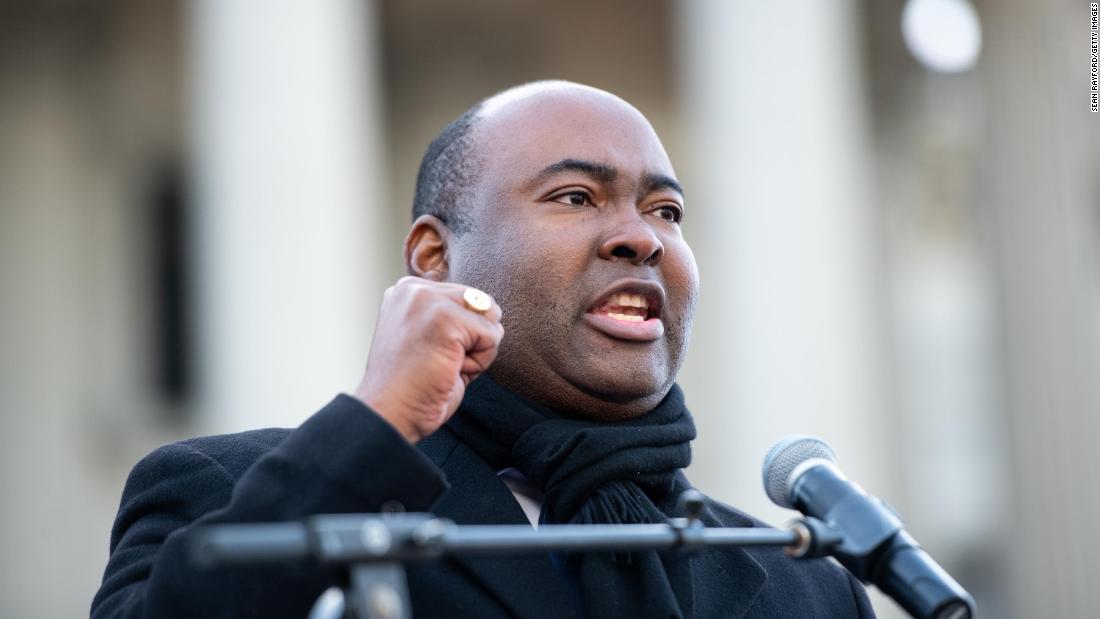[ad_1]
Harrison raised nearly $3.6 million during the last three months of 2019, outraising most other Democratic Senate challengers with the exception of Arizona’s Mark Kelly, the astronaut husband of former Rep. Gabrielle Giffords, and Amy McGrath, who is running a long-shot campaign to unseat Senate Majority Leader Mitch McConnell in Kentucky.
Graham raised even more that Harrison last quarter: almost $4 million. It was a record for a single quarter of fundraising in South Carolina, and Graham is now sitting on more than $10 million, far more than Harrison’s $4.7 million.
That’s put their race on track to be the most expensive Senate campaign in South Carolina history, even though almost no one who watches South Carolina politics closely — except maybe Harrison — thinks it’s possible that Graham will be unseated.
“If Bernie Sanders is on the ticket then it’s the same as if General Grant was invading the Palmetto State,” said David Woodard, a retired political science professor at Clemson University who managed Graham’s first congressional race in 1994.
From the ‘corridor of shame’ to Yale
After working for Clyburn, Harrison served as the first black chair of the South Carolina Democratic party from 2013 to 2017 and is currently associate chair and counsel of the Democratic National Committee.
“I can tell you as a black person in South Carolina whose grandparents grew up through Jim Crow, when you lose the courts and justice no longer becomes just, we’re in a world of trouble. And we are on the verge of that,” Harrison said at the campaign event in Charleston. “And that’s why this election is the most consequential election of our life.”
A close friend, Clay Middleton, says that he and Harrison have been talking about running for political office since they met in 2001 when they were both working in Washington.
“In late night conversations, I remember him saying, ‘Clay, if we ever run for public office, here’s how we would run the campaign and here’s the ideas we would implement,'” Middleton said.
“I’m seeing everything we have talked about come into play,” he added.
Democrats have scored some wins
There are some places where Democrats have broken through. In 2018, Democrat Joe Cunningham flipped South Carolina’s first district, which includes Charleston. It’s a higher educated, higher-income area that Trump carried in 2016. But Cunningham faced off against an outside Republican challenger who defeated incumbent Mark Sanford, the state’s former governor, in the GOP primary.
Newcomers to the state, moving in from blue areas like New England, have sparked hopes of expanding that Democratic support in the booming Charleston area, and Harrison is working to register black voters, who turned out in record numbers to vote for Obama in 2008.
“This should be Graham’s most competitive election since his first contest in 2002,” said Gibbs Knotts, a political science professor at the College of Charleston. “But it’s like they’re running a 100-meter dash and Graham is already at the 20-meter mark.”
“And I remember asking my mom, ‘Are you sure that was Strom?’ She laughed, too, and she said, ‘You know what Jaime, they didn’t ask me what color I was, or what political party I belonged to, all they knew was that I was a constituent that needed help,'” Harrison recalled at his campaign event.
An uphill challenge statewide
Harrison, who lives in Columbia with his wife Marie and their two young sons, believes things have changed for the state’s struggling families.
“These families get up each and every day and believe that there is no hope. They don’t believe that their kids will be better off than them,” he said.
South Carolina Republican Party Chairman Drew McKissick dismissed the challenge posed by Harrison’s campaign.
“If he’s planning on running for US Senate on a county council agenda, he’s not going to get very far on election day,” McKissick said, adding, “I think we’re going to see what we normally see. Republicans doing really, really well on election day and Democrats not so good.”
Graham’s campaign spokesman declined to comment.
Alex Sanders, a Democrat who ran unsuccessfully against Graham in his first bid for the Senate in 2002 to replace Thurmond, said that he thought Harrison was “a spectacularly good candidate” — but said the demographics of the state are an implacable challenge.
“He’s running in the reddest of states,” said Sanders, the former president of the College of Charleston. “Maybe it should have a color of its own, because red isn’t enough.”
[ad_2]
Source link


